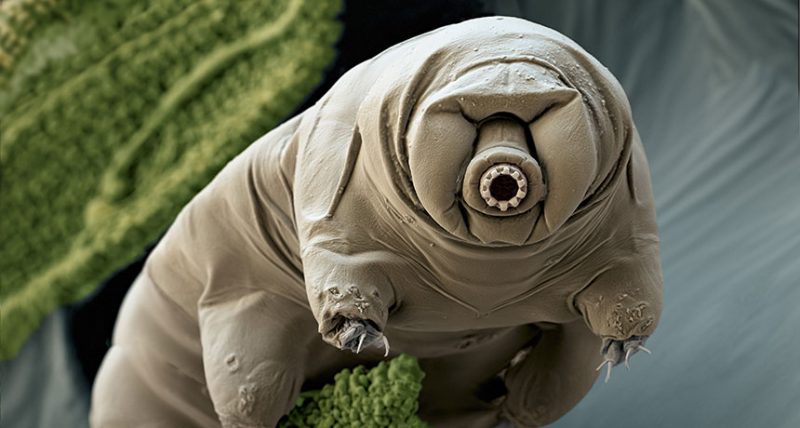Possible? Based on all our current knowledge to date, absolutely.
But, at this point, it's all speculation.
Sure that's why we need a burrowing space probe that will give us sweet video of those giant wormy things living under the ice!
i know NASA had an small probe on the boards that would melt through the ice till it hit water and transform into a lil submersible
In our own oceans we have life that lives around volcanic vents ....not dependent on sunlight
worms that live in ice methane
we know fora fact micro organisms can survive hitching a ride through space
many scientist think life on earth showed up on asteroids bombing the shit out of a primitive earth
and in more recent news
Did these tardigrades survive crash-landing on the moon?
Posted by
Paul Scott Anderson in HUMAN WORLD | SPACE | August 14, 2019
When Israel’s Beresheet lunar spacecraft crashed in April 2019, there were thousands of microscopic, dehydrated tardigrades – water bears – aboard.
S
Meet a tardigrade, also known as a water bear. A few thousand of them (dehydrated) were sent to the moon on the Beresheet spacecraft, which crashed on April 22, 2019. They’re cute … right? Image via Eye of Science/Science Source/
ScienceNews.
Tardigrades – also known as
water bears – are some of the toughest and most resilient creatures on Earth, even though they are virtually microscopic in size, less than a millimeter long. They’re known to be able to survive almost any environment you can throw them into, even
space. Now, it seems that some of them (or possibly their remains) are calling the moon home, thanks to a crash landing of a spacecraft a few months ago. But while tardigrades might be hardy, there’s no reason to think they’ll be taking over our nearest celestial neighbor, any time soon.
The tardigrades were part of a “lunar library” sent to the moon on Israel’s
Beresheet spacecraft. That library was a project of the
Arch Mission Foundation, a nonprofit organization whose goal is to create “a backup of planet Earth.” The library, the size of a DVD, included 30 million pages of information, human DNA samples and thousands of dehydrated tardigrades.
Beresheet attempted its landing in the
Sea of Serenity on April 11, 2019, but crashed after a problem with the engine in the last moments. As
Nova Spivack, founder of AMF, recounted:
95% chance their is other life in our very own solar system ...we just havent found it yet

